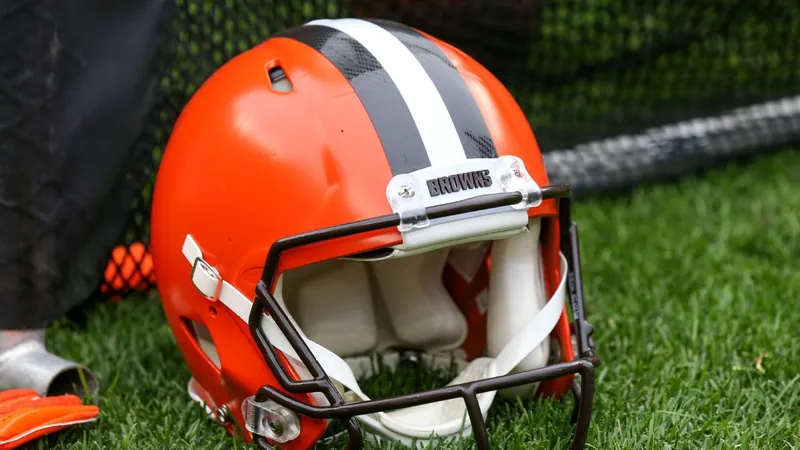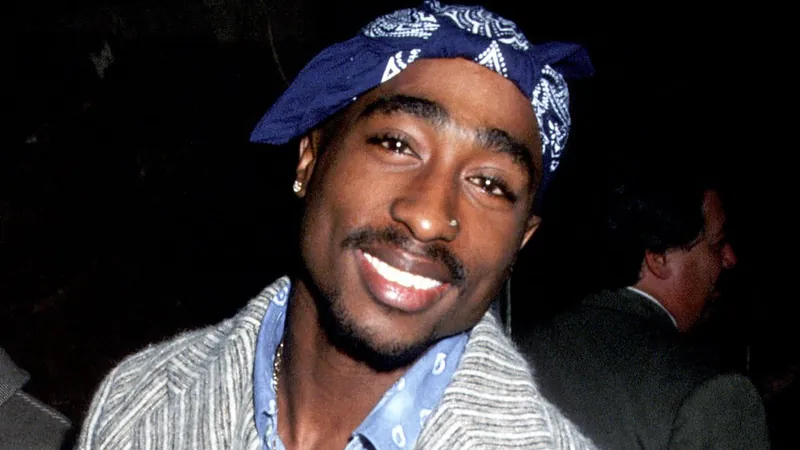
Cleveland Fights Back: 'Modell Law' Stands in the Way of Browns' Move to New Stadium!
2024-12-31
Author: Wai
CLEVELAND — The Cleveland Browns' ambition to relocate and play in a newly proposed domed stadium has hit a significant hurdle.
Cleveland Mayor Justin Bibb has taken a firm stance against the proposed move, notifying team owners Dee and Jimmy Haslam that the city plans to invoke the "Modell Law," aimed specifically at preventing the team from abandoning its current lakefront stadium. Their existing lease is set to expire in 2028.
Mayor Bibb has requested an official response from the team by January 9, and has indicated that if the Browns fail to comply, the city will pursue legal avenues to enforce this law.
The Modell Law
The Modell Law was enacted in 1996 in direct response to former Browns owner Art Modell’s controversial decision to relocate the franchise to Baltimore. The law stipulates that any professional sports team in Ohio playing in a tax-funded facility cannot leave without a formal agreement with the city, nor can they relocate without giving the city six months' notice alongside an opportunity for the city to buy the team.
Recent Developments
Recently, the Browns filed a federal lawsuit seeking clarification on the implications of the Modell Law, but that case remains pending. In light of the mayor's recent communication, the team expressed their discontent, stating, “The statute and the city's actions create uncertainty and do not serve the interest of Greater Cleveland.”
The Haslams' Proposal
This new development represents just the latest chapter in a contentious saga between the city and the Browns. The Haslams have been vocal about their vision of a $2.4 billion domed stadium accompanied by an entertainment complex in Brook Park, located approximately 10 miles south of Cleveland. They are advocating for a public-private partnership to co-finance the construction of this new venue.
City's Counterproposal
In contrast, the city has countered with an alternative proposal to cover half the renovation costs of the current stadium, which has served the team since its reopening in 1999 following Cleveland's reinstatement in the NFL. This stadium, with a seating capacity of 65,000, is seen by many in the city as a historical centerpiece of Cleveland football.
Infrastructure Challenges
The Haslams argue that simply refurbishing the existing facility doesn't address larger infrastructure challenges, such as insufficient parking and access issues. They contend that a domed stadium would not only provide a modern venue for home games but would also attract prestigious regional events, concerts, and a wider array of sporting occasions, potentially enhancing local economic growth.
Looking Ahead
As tensions rise and the deadline approaches, it remains to be seen how both the city and the Browns will navigate this complicated issue while keeping the interests of Cleveland’s passionate fanbase front and center. Stay tuned for updates on this unfolding drama!





 Brasil (PT)
Brasil (PT)
 Canada (EN)
Canada (EN)
 Chile (ES)
Chile (ES)
 Česko (CS)
Česko (CS)
 대한민국 (KO)
대한민국 (KO)
 España (ES)
España (ES)
 France (FR)
France (FR)
 Hong Kong (EN)
Hong Kong (EN)
 Italia (IT)
Italia (IT)
 日本 (JA)
日本 (JA)
 Magyarország (HU)
Magyarország (HU)
 Norge (NO)
Norge (NO)
 Polska (PL)
Polska (PL)
 Schweiz (DE)
Schweiz (DE)
 Singapore (EN)
Singapore (EN)
 Sverige (SV)
Sverige (SV)
 Suomi (FI)
Suomi (FI)
 Türkiye (TR)
Türkiye (TR)
 الإمارات العربية المتحدة (AR)
الإمارات العربية المتحدة (AR)